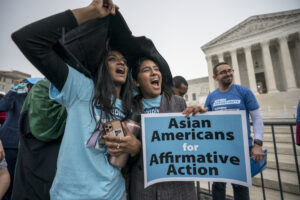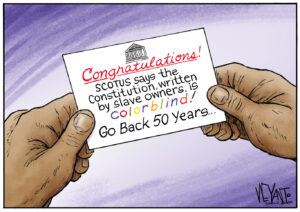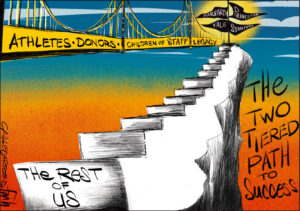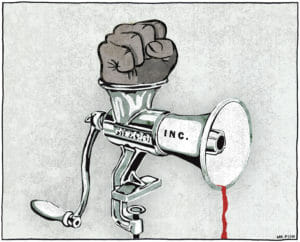Affirmative Action for Ugly People
Research over the years has shown that attractive people tend to reap economic rewards, from higher salaries and more promotions to lower interest rates on mortgages. (more)
Research over the years has shown that attractive people tend to reap economic rewards, from higher salaries and more promotions to lower interest rates on mortgages. In fact, one study showed that a person in the ugliest one-seventh of the population, as assessed by random observers, earned 10 to 15 percent less per year than a comparable, good-looking worker.
Economics professor Daniel Hamermesh argues in an Op-Ed in The New York Times that such disparate treatment of people based on their physical appearance is “a matter of simple prejudice,” and that maybe it’s time we granted “legal protections to the ugly, as we do with racial, ethnic and religious minorities, women and handicapped individuals.” –BF
Your support is crucial...Daniel S. Hamermesh in The New York Times:
The mechanics of legislating [legal protection to the ugly] are not as difficult as you might think. You might argue that people can’t be classified by their looks — that beauty is in the eye of the beholder. That aphorism is correct in one sense: if asked who is the most beautiful person in a group of beautiful people, you and I might well have different answers. But when it comes to differentiating classes of attractiveness, we all view beauty similarly: someone whom you consider good-looking will be viewed similarly by most others; someone you consider ugly will be viewed as ugly by most others. In one study, more than half of a group of people were assessed identically by each of two observers using a five-point scale; and very few assessments differed by more than one point.
For purposes of administering a law, we surely could agree on who is truly ugly, perhaps the worst-looking 1 or 2 percent of the population. The difficulties in classification are little greater than those faced in deciding who qualifies for protection on grounds of disabilities that limit the activities of daily life, as shown by conflicting decisions in numerous legal cases involving obesity.
As we navigate an uncertain 2025, with a new administration questioning press freedoms, the risks are clear: our ability to report freely is under threat.
Your tax-deductible donation enables us to dig deeper, delivering fearless investigative reporting and analysis that exposes the reality beneath the headlines — without compromise.
Now is the time to take action. Stand with our courageous journalists. Donate today to protect a free press, uphold democracy and uncover the stories that need to be told.






You need to be a supporter to comment.
There are currently no responses to this article.
Be the first to respond.